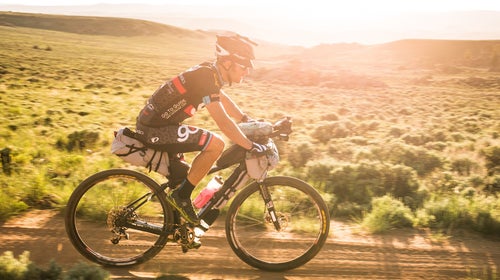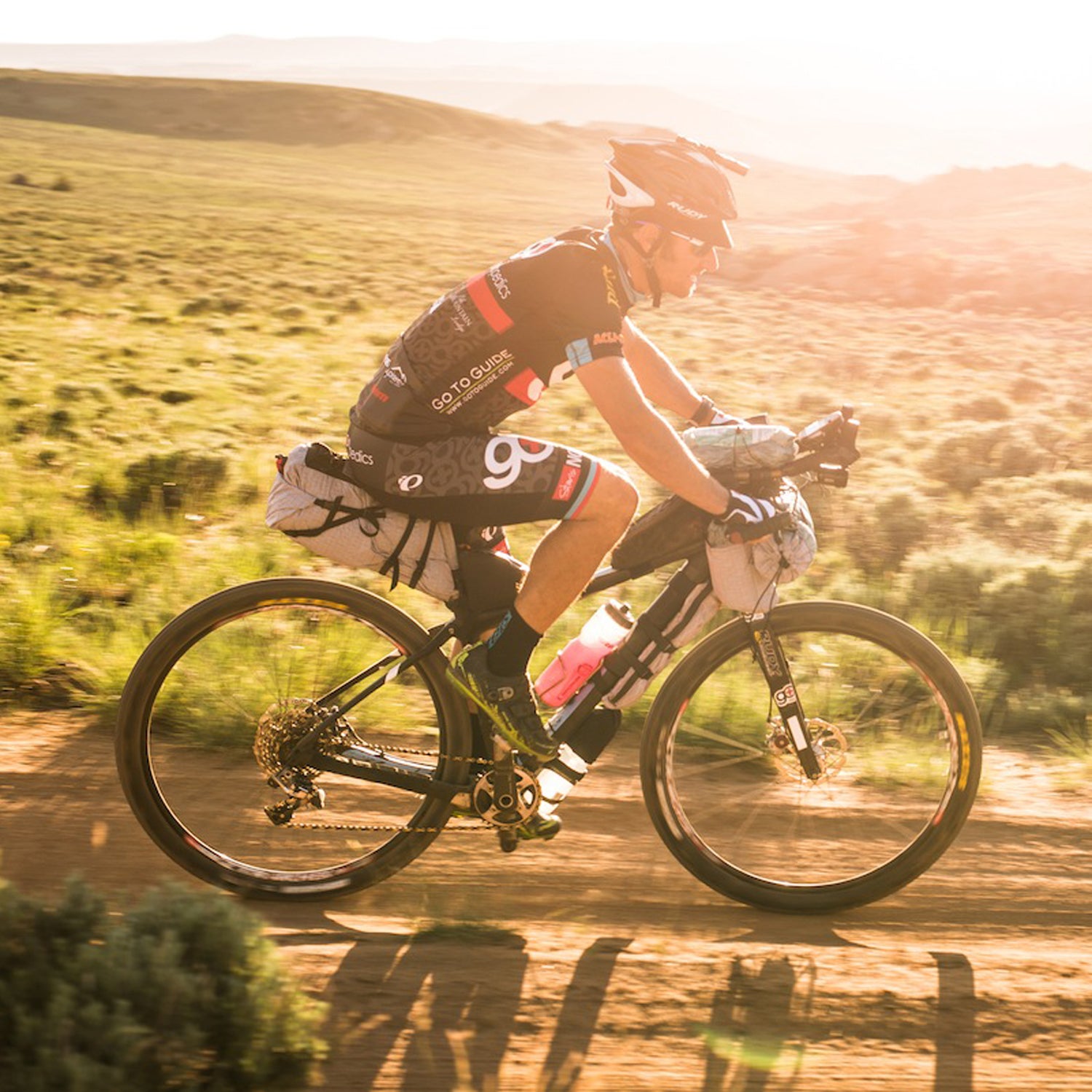The hardest bike race in the world is currently underway, and we’re not talking about the Tour de France. Started on June 13, the is a single-stage, self-supported mountain bike race along the Continental Divide from Banff, Canada, to Antelope Wells, New Mexico.
Most racers are still on course (or have dropped out), but , is already home. Branham, a 41-year-old bike mechanic from Gunnison, Colorado, sprinted the 2,745-mile course in 16 days, 2 hours, and 39 minutes. That’s an average of more than 170 miles per day. (For comparison, riders in this year's Tour de France will cover 2,276 miles in 21 days.)
It’s not the fastest the course has ever been covered (the official record is some 10 hours quicker), but given that rain and snow strafed the racers for the first five days of the event, it’s an impressively fast, tenacious run. To wit, Branham finished over two full two days ahead of second place.
We caught up with Branham at his home in Gunnison to find out what it took to pull off the win at this year’s Tour Divide. For vivid firsthand accounts of the race, .
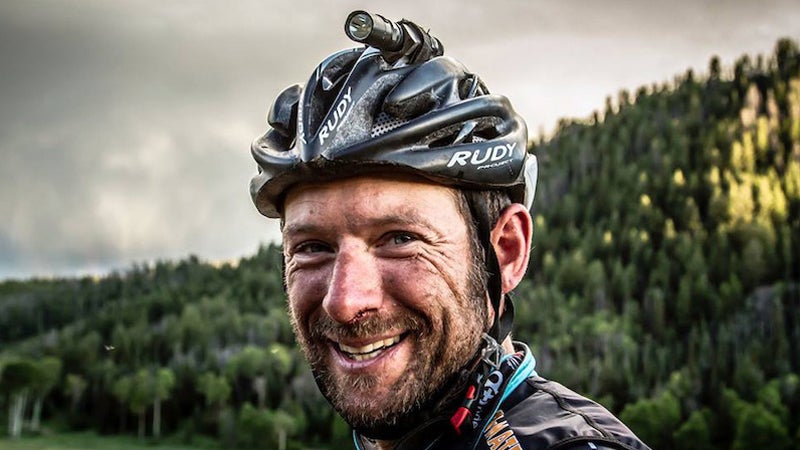
OUTSIDE: How do you prepare for a race this big?
BRANHAM: To be honest, it’s more about years of experience than the miles you put in. It’s how you deal when it’s not so much fun and things fall apart. After the first 24 hours, it’s mostly a mental battle. The more physical base you have, the easier it is. But when the race starts to hurt and you’re tired and you don’t really want to keep pushing, it’s the years of experience that keep you going.
You had a new bike for the event, right?
Yeah, I rode the , which Ibis launched as I finished the race. It was definitely a little stressful. Ibis wasn’t sure if they were going to be able to get it to me in time. Leading up to the race, I actually built up my old Salsa El Mariachi, which is what I did the Divide on before. It’s a good bike but it’s heavy. I only got the new bike a week and a half before the race, so I didn’t have much time on it. I slapped it together and got a few rides. But it did awesome. I didn’t have any mechanicals. I basically changed my brake pads and lubed my chain.
Your kit seemed incredibly light. You didn’t even have a backpack.
I don’t think I went ridiculously light, but most people probably thought that. I had a homemade bivy/sleeping bag/pad combo made from cuben fiber and Climashield insulation that weighed less than a pound.
I used an Exposure Revo light wired to a Dynamo hub and a Fenix LD22 on my helmet. I had a Garmin eTrex 20 for navigation, a few hygiene items like toothbrush, sunblock, and Handi Wipes, and basic bike repair items including two tubes, brake pads and chain links, and a small bottle of Stan’s. For hydration, I had two one-liter bottles and one 750ml bike bottle.
I wore a jersey, shorts, gloves, and a helmet. For extras, I carried a rain jacket, Salomon XC ski pants cut to knickers, a homemade puffy vest that weighed 115 grams, arm warmers, a wind vest, soft shell gloves, a Buff, and a wool Walz cap. I definitely wished that I had more clothes, especially those first five days. It was the coldest and wettest I’ve ever been over a sustained period.
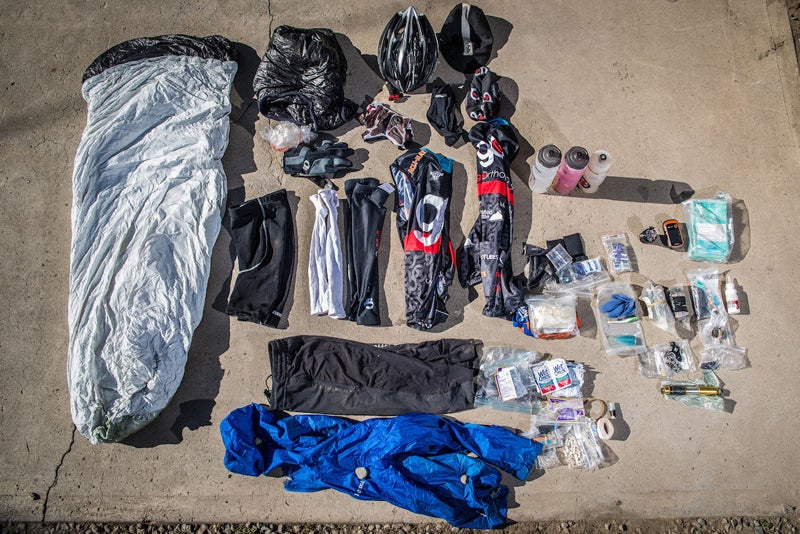
How did the atrocious weather at the start affect your ride?
The morning of the race it started raining. Once we were riding, rain turned to snow, and it was a bit of a slushy mess. There were maybe three or four hours it didn’t rain that first day, and I barely got out of my rain gear. I ended up pushing the whole first night, and it rained all night. It did that for the first four-and-a-half or five days. It mostly rained, sometimes it misted, and it snowed some. I wasn’t stopping for long, but when I did, it was miserable, with everything wet, no way to stay warm.
Leaving Butte, Montana, was the worst. Everyone was saying that it was going to snow that night. But no way was I going to stay in Butte because I figured others would catch up with me, and all that lack of sleep in the first few nights would be for nothing. So I went out anyway and rode all night. Coming over Fleecer Ridge, there was considerable snow, like six inches. Below the snow line it was raining, and I was just freezing. I rolled into Wise River around 5:30 a.m. and nothing was open, so I took refuge in the Post office 'till a restaurant opened. I couldn’t even hold a hot cup of coffee. I think I was borderline hypothermic.
It’s hard to say how those first days affected the rest of my ride. I was still keeping pace, but I just dug a hole that I couldn’t get out of. By day four, I couldn’t keep my eyes open.
Your capacity to race without sleep is legendary, like your first sub-four-day CTR with . How do you do it?
Good question. I don’t really know why. I guess I’ve just done it a lot. I kind of know what to expect. For the most part, sleep deprivation is kind of just a weird head-trip. That being said, the whole race was the hardest thing I’ve ever done, and I think the sleep deprivation was a big part of that. The first few days, I was so bent on getting 200 miles a day that I just wasn’t letting myself sleep. I think it was a tactical error. I should have slept more at the start. That was the plan, but I also wanted to get out front, so I just kept pushing.
I don’t know that I’m going to be doing any races that require sleep deprivation in the near future. I might be done with it completely. It just really hurt.
What's the longest passage between food and water resupply? How do you deal with it?
Water isn’t too bad until you get into New Mexico. From Atlantic City to Rawlins, all in Wyoming, is around 170 miles. I hit it at night, so even though I was tight on water, I made it okay.
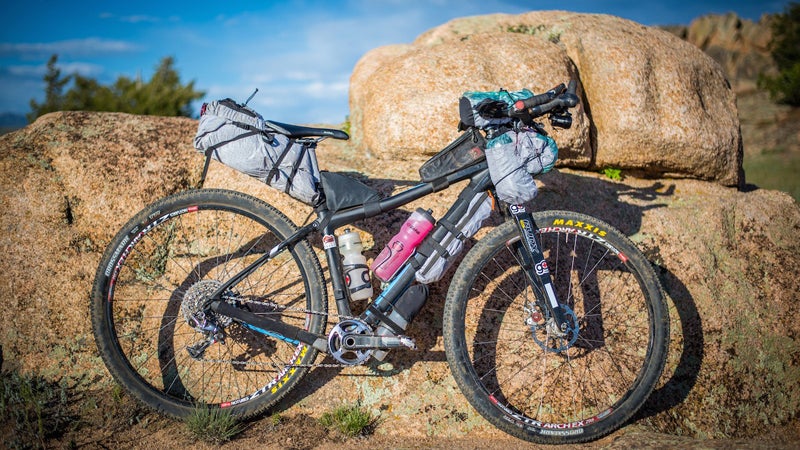
New Mexico, on the other hand, is a huge challenge. I made some big mistakes here last time I rode the Divide. Between Grants and Silver City, which I think is 250 miles, I ran out of food and water and it basically shut me down. This time I was determined not to make the same mistake.
I was okay on water this time, but I didn’t have enough food. You buy $60 of food and you think, “There’s no way I can run out.” There’s so much that you have a hard time finding places on the bike to put it. And then 10 hours later you look down and you’re like, “Where did it all go?” I never ran out, but I was rationing after Pie Town, and when I got to Silver City I was starving.
I imagine that the mental aspect of being out alone and pushing yourself day after day is even harder than the logistics, right?
For sure. It was incredibly difficult. Once I blew off a lot of my steam at the start and settled into a pace where I was sleeping more, like five hours a night, you’d hear that alarm and it was really hard not to find excuses to re-set it. In the shorter races, three or four days, it’s easier to make yourself get up and keep going. But there’s a big difference in going hard for 16 days straight.
I had that conversation with myself a million times. “Why am I doing this?” “Because you’re racing.” “Why am I racing?” “Because you think it’s fun.” “Why do you think it’s fun?”
Mornings were the hardest. From when I got up until noon, I’d be thinking, “This sucks. I can’t ride. I’m exhausted.” But then in the afternoons, I’d come around and I’d be like, “This is awesome. I’m flying. I love being here.” The highs and lows were difficult. I just had to remind myself that I chose to be out there, nobody was making me do it.
Did you enjoy the racing?
At times, for sure. There were so many amazing moments. There were enjoyable moments, but mostly it was head down, in the pain cave, get it done. I was definitely racing.
There’s a video of you arriving at the finish, and it looks like such an anti-climax: Just you riding into a lonely, dusty fence-line on the border. Did it feel like a letdown?
It’s definitely anticlimactic. If someone were to organize a new race, it would be the worst finish ever. It’s 65 miles of straight, flat, hot pavement. I was so tired that I was falling asleep. It’s kind of an insult at the end. You try to be present most of the way. But on that last section, you just think about being at the finish, taking off your terrible shoes, getting out of your chamois. I was so glad to have someone there to meet me. I think it would be heartbreaking if you rolled up and there was nobody there. The border guards don’t even come out because it’s too hot.
Does it bother you that the Tour Divide doesn’t get more recognition?
I don’t do it for recognition, so no it doesn’t bother me. Sometimes I wish it wasn’t so hard to pull off. Financially it was tough for me to even get to the start. I carpooled with three other guys who were doing it. And when I was out there racing, I probably spent $1,200 just on food. And I was doing it cheap: I got one bed during the whole race, and other than food, all I bought was chain lube. So yeah, if I was going to try to keep doing these types of races for a long time, I guess it would be nice if more people knew about them so it would be easier to support yourself.
That makes it sound like maybe you’re finished with endurance racing?
I’m not going to say it for sure. Last time I did the Divide, I said for sure I’d never do it again. Then you can’t help but look at your mistakes and want to make them better. But I think my desire to do races that involve sleep deprivation is waning.
I know you went out chasing a record time. Do you think it’s fair to compare efforts year to year given the disparity in conditions?
It’s a really good question. I read an interview with Jeff Oatley after he won the Iditabike, and it was awesome to hear him talk about how records don’t really mean anything. It made sense to me. That’s the thing about a route this large. So much stuff happens. Construction zones, snow, rain.
But I still think records are interesting because they provide motivation. And I’m not blaming the weather for missing my goal. I’m not making excuses. I just didn’t have the legs. I couldn’t go faster and I couldn’t keep my eyes open.
Do you look back and think, “Wow, if I’d just done this or that, not stopped here, I could have broken the record?”
When I was out there, I made myself crazy thinking, “Just go a little faster. Just do six miles more a day.” That doesn’t sound like much. But then you’re at your limit, pushing as hard as you can, and it’s a lot harder than it sounds. I wasted more time than I should have getting in and out of towns. So yeah, there are things I could have done better. But at the same time, I rode my ass off out there. I rode my heart out.
So you’re not disappointed with your result?
I’m content. It would have been awesome to break the record. But I think it’s better to have lofty goals and not accomplish them than to not set big goals for yourself. I left it all out there. I have to be happy with that.
Are you done with the Tour Divide?
I’m still having dreams about it. I’m still having trouble sleeping. But no, I don’t think I want to go back and do it again. The only reason for me to go back would be to go faster, and that would just be so painful. It already hurt so much. So yeah, I don’t think I’ll do it again. [Laughs] But who knows? I’ve got a year to think about it.
